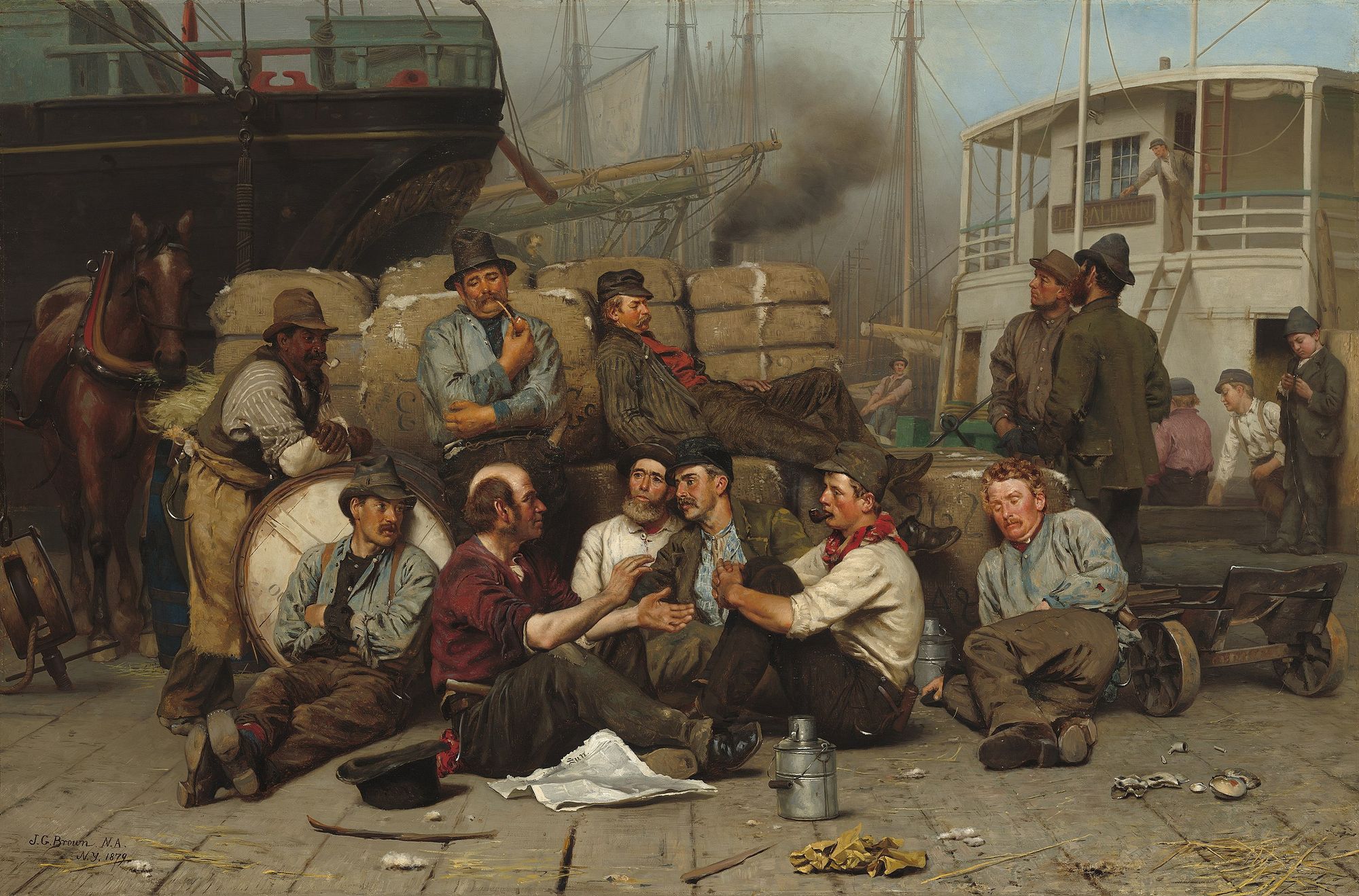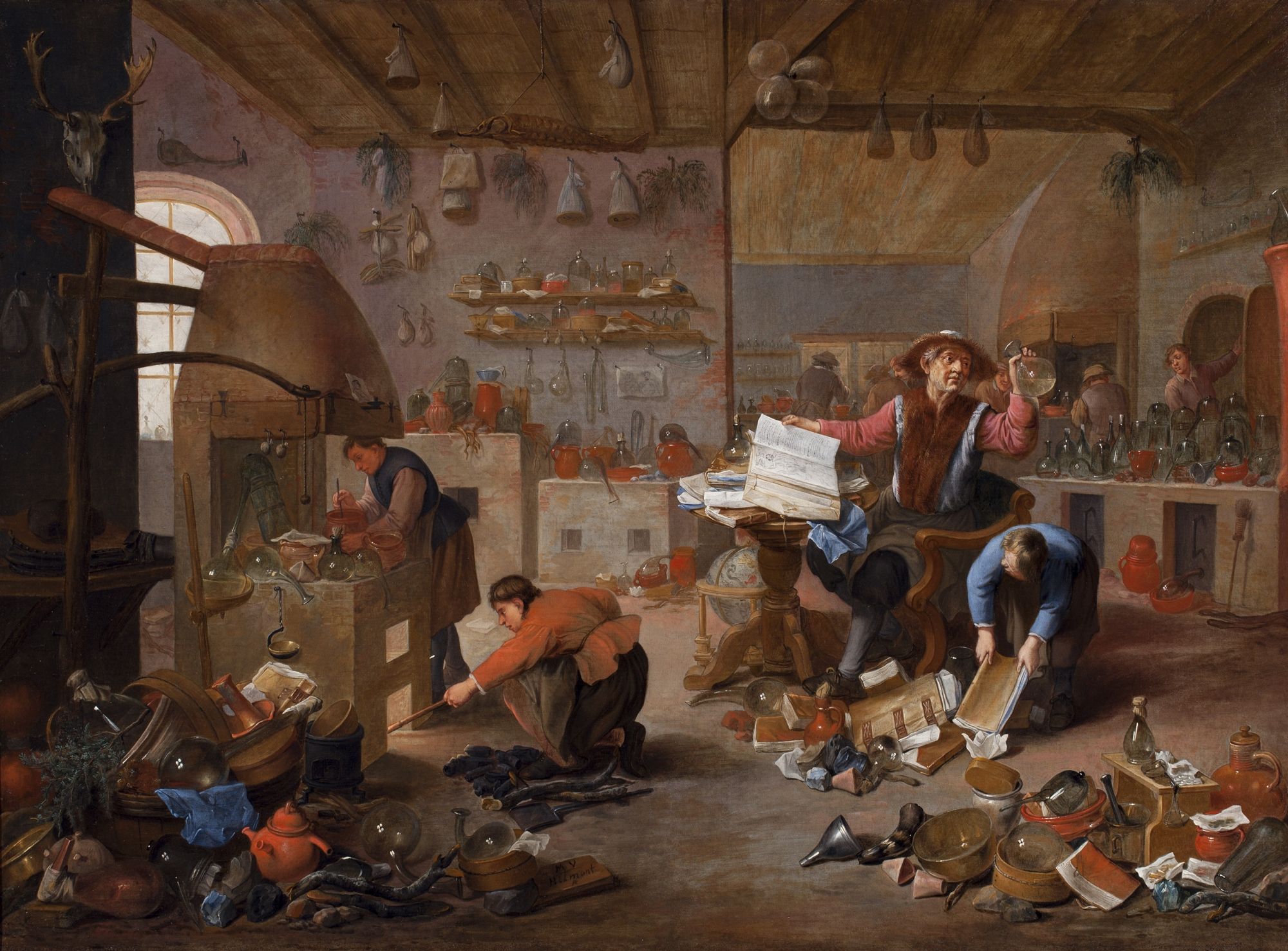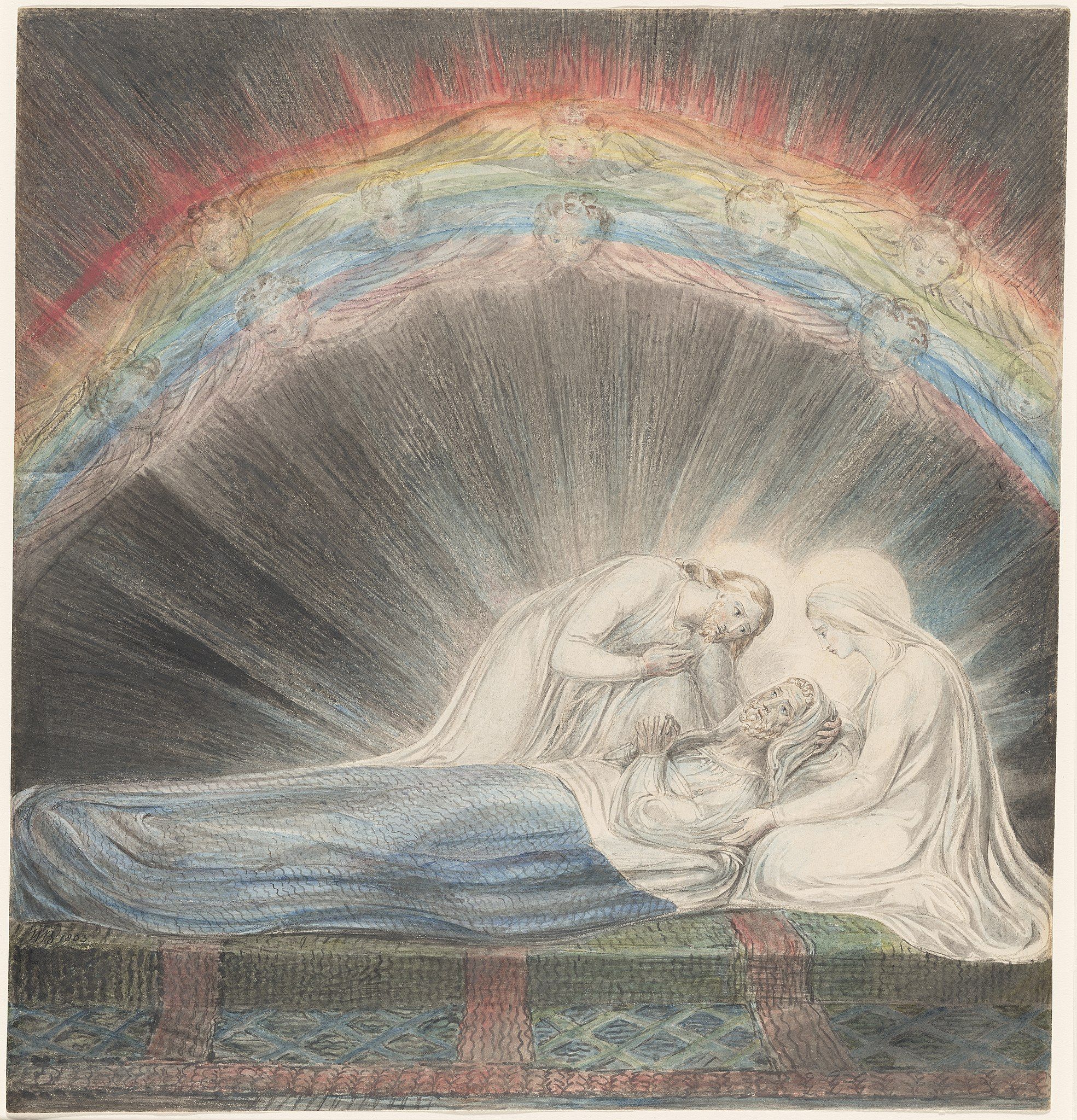
The Longshoremen's Noon by John George Brown, c. 1879
An advertising executive once said that he knew half of his budget was wasted and he didn't know which half. Marketers have a fancy term for that: wastage. And it's been their mission for decades to eliminate waste. Efficiency is the name of the game.
The first time I came across this idea was when I read Rory Sutherland's book, Alchemy. My copy of that book sits in the stack of important books I mentioned a few weeks ago. It changed my perspective on a lot of things, including a culture of optimization which I'd blindly followed previously. Other topics are covered, but at the time I was blown away by Rory's point that wastage can actually be a good thing, especially in advertising (and, in my mind, beyond).
He leverages a lot of evolutionary research about costly signalling. The mere fact that companies like Coca-cola have the bankroll to buy adstock during the Super Bowl signals to consumers that they mean business. It doesn't mean that they are reckless with spending, but rather that they have come to terms that it is impossible for them to track every last sale and attribute it to a particular ad campaign. If they could, they would, but they can't, so they don't bother trying.
In the last few months, I have been seeing this idea everywhere. In any complex system, rational actors understand that some effort is wasted. In finance, there is an acceptable threshold for fraud. In IT, there is a margin of error built into that last tenth of the 99.9% service agreements. Biohackers pump themselves full of vitamin cocktails and submit themselves to strict fitness regiments, all with the disclaimer that they can't be quite sure if every component is making a difference, but on the whole they feel that it's working.
One arena which has not grasped wastage is the world of management, particularly in the technology sector. Many software firms have doubled in size since 2020, and in the last six months they've been feeling the come down after the manic pixie fever dream that was the lockdown internet boom. Naturally, they now need to cull their workforce to reflect the current economic reality.
This comes after an explosion of day in the life of a Meta product manager, where college grads flaunted their lavish workplace perks, yet didn't appear to be doing much work. Anthropological studies can be found elsewhere, but there were a lot of tech workers (often the people actually doing the work) pointing out the elephant in the room: software companies are bloated and have started to turn into adult daycare.
When Elon bought Twitter and fired (or lost) thousands of people, pundits were watching with wide eyes. I recall venture capitalists tweeting that many founders and CEOs were eager to follow suit, knowing that they grew too much, too soon. Having a very successful and very public example of a workforce reduction would support the case of many leaders hoping to do the same. The message was clear: we're going to get rid of the bloat and the unproductive people.
Initially, I was right there with them. I spent a year and a half in what I'd consider a tier 2 software company, and had many of the same thoughts. What in the hell are all these people doing every day? What's with all of these weird cultural committees? Why is there not someone breathing down my neck to get work done? Have we really not been able to ship anything of substance in a couple of years? What gives?
But then I remembered that old saying, and tweeted “Half of my employees aren’t productive; the trouble is, I don’t know which half.” I followed up with a thread talking about the challenges of finding the fat to trim in the first place.
Knowledge work is not like an assembly line. It's hard to get smart people to follow a process, even if you could come up with one that is effective. There is no equation which can help you say something like if this engine was assembled 30 seconds faster, we could make and extra 5,000 vehicles this year.
Many project and engineering managers are silly enough to think that lines of code or number of commits or response time to pull requests is an appropriate analog. And product people like to trot out their roadmaps, thinking that having a plan can be equated to efficient work. Everyone knows that estimating work efforts only creates temporary, short-term certainty, yet executives everywhere demand eighteen month plans.
And they get those plans, only to be consistently disappointed when work isn't going out the door when their Gantt chart claimed it would. They apply pressure, and the drive for efficiency intensifies. Scope is absolutely gutted in hopes that something, anything can get out the door. That works, but the work is of such dismal quality that it needs to be torn down and built again.
You may be noticing a tension here: how are these companies so generously staffed but so short on time? The common answer is that they are rife with unproductive practices, whether it be excessive meetings or silly cultural LARPs or just downright poor hiring standards. On the surface, these seem like satisfactory answers with clear remedies: more stringent meeting policies and closing the committees and recruiting higher quality talent.
But remember, half of employees are unproductive, and we don't know which half. You could also say that all employees are working at half capacity, but we don't know which half of their time is wasted.
Are there some people who skate by without working at all? Not for long. They eventually get caught, and they are a tiny group anyways. The vast majority of workers are smart: they always remain busy. They keep their calendars filled with meetings and volunteer to take on remedial tasks so that when their boss checks on them they always have updates to give.
Within that busywork are vital meetings and tasks which are required for the operation of the business. The trouble is, at a sufficiently large company, there are too many todo lists and calendar invites to do a proper audit. And even if you could, such a fact-finding mission would erode trust. The best any manager can do is point out the problem, make obvious corrections, and remind their subordinates to use their time wisely.
So you still don't have a grasp on the actual work. You may be able to gather that you aren't reaching your milestones or that you're lagging behind KPI targets, but you're no closer to understanding how to remedy the situation. If that happens long enough, the bean counters begin to worry, and layoffs shuffle their way to the boardroom table.
It's peculiar how the average employee thinks about layoffs. This place would fall apart without me may be on America's top ten most frequently uttered phrases. A long time ago I made peace with that: it may be the case, but they will certainly manage without you. Regardless, employees know the critical functions they perform, but they're bad at communicating about it. I suspect they do not want to be held accountable for poor performance, so they don't take full ownership. Anyways, because people generally perform their duties to a satisfactory level, the machinery of the business keeps humming along.
This was very much the case at Twitter. Everyone was worried that the significantly reduced staff would lack both raw manpower and systematic expertise to keep that paricular machine running. After finding holes in the staff, the company had to convince and coerce people it had fired mere days earlier to ensure they had a skeleton crew. The verdict is still out: there have been minimal interruptions thus far, but there's an off chance some certificate will need to be renewed this June and the only guy that knew about it is long gone.
Thinking through this case again brings me back to the 50/50 concept. I think there are a couple of corellaries to Chesterson's fence creeping in most companies.
First, somewhere within any business is a wizard of a man who built some system, line by line. He knew the ins and outs and the gotchas. His domain ticked along without interruption, save for that 0.1% of alotted downtime. Perhaps he spent 4 hours a month maintaining this system, and the rest sun tanning on the roof. If his year's worth of work amounted to 50 hours, and his salary was $300k, but preventing incidents saved the company millions, that sounds like a great deal for everyone.
Or, take an R&D engineer, who is exploring the possibilities for the company. She is speculating where the market will be in a few year's time. She's entralled by her work, even though she's had little material output thus far. All of those 60 hour weeks have so far yielded nothing. That's the way innovation goes. You keep chipping away, investing whatever time and money makes sense, because you know at some point the world will change and you need to be prepared. Just because there's not clear output doesn't mean that the work is not valuable.
Corporations like to categorize employees as cost centers and money makers. If your department doesn't bring in revenue, it's a cost center.
I like to categorize employees as maintainers and innovators. If you department does work that keeps the lights on, you are a maintainer. These categories are not mutually exclusive. Maintainers must be able to innovate, and innovators have to keep in mind that someday their work must be maintained. Both maintainers and innovators are required if a company is to have sustained success.
Now, you might be wondering what this maintainer-innovator paradigm has to do with the 50/50 principle. After all, a simple recategorization doesn't change the facts on the ground: product still needs to get shipped and people must coordinate amongst themselves and feel safe doing so. How does that fix the efficiency problem?
My answer is that, like the advertiser above, companies must make peace with wastage. An hour just an hour. A line of code just a line of code. Your quarterly targets are just that. All of that is the stuff, the substance, that makes up every business. Yes, work must get shipped and money must be made. Hard times will eventually knock on your door, forcing you to trim the fat.
At the end of the day, it's all about making sure that the show goes on. The maintainer-innovator paradigm reframes operations as the things which are essential for the long term vitality of any company. I like to think of it as an Infinite mindset towards business. The goal should be to master the inner game of management so that instead of fear, work is powered by pleasure.








